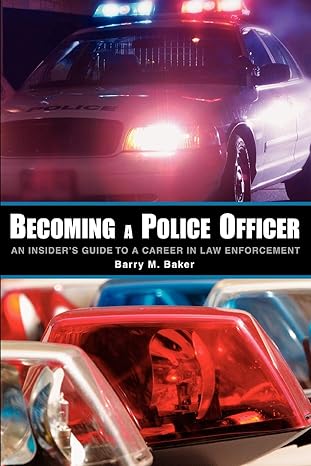
I have to yawn every time I see academic research where crime statistics are heavily relied upon to support theories and validate conclusions.
~ Barry M. Baker Tweet

Detective Lieutenant Barry M. Baker (ret.) is a 32 year veteran of the Baltimore Police Department.
Police and statistics could be an incredible combination in the effort to identify and control crime if police could grasp the importance. The incredible advancements in computer technology have made the potential for police statistical analysis endless. It’s too bad no one has found a way to remove people from the process.
People will always be the determining factor for the accuracy, or near accuracy, of statistical compilations. As long as police statistics are viewed primarily through a political lens versus a strategic one, the problems associated with police and statistics will never abate.
I have to yawn every time I see academic research where crime statistics are heavily relied upon to support theories and validate conclusions. Most people would agree that academics feel intellectually superior. Ironically, they still rely on statistical data provided by the less intellectual among us.
Uniform Crime Reporting
Crime is such a critical social issue that affects everyone to some degree. One might think that every police department would make extraordinary efforts to accurately report crime. In fact, the FBI’s Uniform Crime Reporting System has existed for decades. The system is superbly designed to accurately classify types and instances of crime committed in the United States.
A decentralized police structure is vital for the preservation of a democracy. However, it performs poorly when it comes to accurately documenting crimes. UCR is voluntary; although, enough police departments report via UCR to make the system a good measure of crime. How police departments report crime determines its accuracy, and here’s where the train goes off the tracks.
I’m certain there are some police departments that maintain strict adherence to UCR guidelines. You might even join a police department in that category. Of course, there’s no way of knowing; until, you’re on the inside and privy to the way things are done. It’s really pretty simple. You’ll be held to a high standard for accurately reporting crime or you won’t. You could receive subtle or overt pressure to ignore or downgrade crime.
Formula Junkies Love Police Statistics
You’re the most important element in crime reporting since it all starts with you. Crime statistics can still be manipulated down the road by the formula junkies. The formulas are most useful in reducing reported crime; however, they can be used to increase crime as well.
A new police chief is hired, and the chief determines that crime for the previous year was under reported. Some formula is concocted to increase selected categories of crime. Now the chief is competing against an artificially higher crime rate from the previous year. Fudging the old numbers upward is also easier to justify than messing around with ongoing crime reporting.
Quality Control and Continuity of Purpose
Statistical analysis is extremely important if it’s done under systems of real quality control. You’ll often hear those two words – quality control. Too often, they’re just mere words uttered with no actual system in existence to support them. Accurate police statistics also require a continuity of purpose. You can’t continually change the criteria for statistical tracking, and here’s where police departments fail badly. A police department is a political animal, and it is constantly at the mercy of political winds and whims.
You’ll learn that somebody is tracking something all the time, and you’ll be expected to provide the police statistics. Hopefully, you won’t be subjected to the “this” today and “something else” next week. If you are subjected to constant change, just resign yourself to the inconvenience.
Manipulating Police Statistics
Even when a good system is in place to track useful information, it can always be manipulated. I once checked the number of arrests for an officer who’d spent little more than a year on the street before moving onward and upward. I was amazed to see the officer had made nearly 300 arrests, and nearly all the arrests were high quality such as robbery, burglary, rape, etc.
The high arrest number and type standing alone would be impressive. Under closer examination, the time frame, quantity and quality revealed the officer spent more time with the desk sergeant than working the street. When an arrest warrant would arrive for a suspect previously arrested on an unrelated charge, the officer would simply sign for service of the warrant and become the arresting officer of record. Like this officer, you don’t have to break any rules to manipulate police statistics as long as your creativity and motive is not illegal.
High quality statistical compilation and analysis can be positive in ways too many to describe, but it all comes down to the quality of the people doing the compiling and analyzing.
Related Content for Police and Statistics
Advertisements


